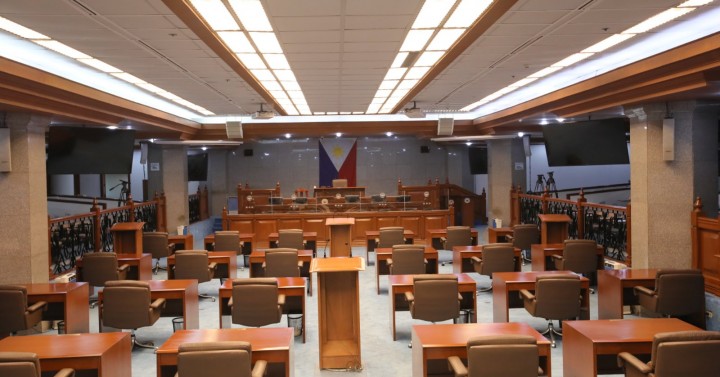News
Senate adopts PBBM’s amnesty grant to rebels

However, amnesty shall not be granted to those who have already been proscribed or charged under the Human Security Act of 2007 and the Anti-Terrorism Act of 2020.
(PNA file photo by Avito Dalan)
MANILA – The Senate adopted on Monday the three concurrent resolutions favoring President Ferdinand R. Marcos Jr.’s grant of amnesty to various rebel and insurgent groups in the country, less than three months after the signing of the presidential proclamations.
Senator Jinggoy Estrada, who sponsored the concurrence, said it signifies the Filipino’s support to the comprehensive peace efforts and the genuine commitment of the government to attaining lasting peace.
“I am truly honored and privileged to sponsor these measures that will foster healing and social cohesion, and will provide the window to end internal armed conflict and rebellion, which have already cost the country a staggering amount of lost economic opportunities and the lives of countless Filipinos,” Estrada said.
“We thank the esteemed members of this august chamber under the leadership of Senate President Juan Miguel Zubiri, as well as our Minority Floor Leader Senator Koko Pimentel, who happens to be both proud and renowned sons of the great Mindanao region, for prioritizing our committee reports and allowing this representation to defend these important measures amid the very hectic legislative agenda,” he added.
At least 2,000 former members of the separatist group Moro National Liberation Front (MNLF), 1,200 from the Rebolusyonaryong Partido ng Manggagawa ng Pilipinas/Revolutionary Proletarian Army/Alex Boncayao Brigade (RPMP-RPA-ABB), and 400 Moro Islamic Liberation Front (MILF) surrenderers are expected to avail of the amnesty.
The amnesty is granted to rebels who have committed crimes in pursuit of their political beliefs.
These crimes include, but are not limited to, rebellion or insurrection, sedition, illegal assembly, direct and indirect assault, resistance and disobedience to a person in authority, and illegal possession of firearms, ammunition, or explosives.
“It is important to note that these crimes or offenses must have been committed in furtherance of, incident to, or in connection with the crimes of rebellion or insurrection, among others,” Estrada said.
As provided under Section 4 of each presidential proclamation, the amnesty shall extinguish any criminal liability of former rebels for acts committed in pursuit of their political beliefs and shall also restore civil and political rights suspended or lost by criminal conviction.
However, amnesty shall not be granted to those who have already been proscribed or charged under the Human Security Act of 2007 and the Anti-Terrorism Act of 2020.
Additionally, it shall not cover crimes such as kidnap for ransom, massacre, rape, terrorism, crimes against chastity, crimes committed for personal ends, violation of the Comprehensive Dangerous Drugs Act of 2002, grave violations of the Geneva Convention of 1949, genocide, crimes against humanity, war crimes, torture, enforced disappearances, and other gross violations of human rights.
Following the congressional concurrence to the said presidential proclamations, Estrada said his Committee on National Defense and Security, Peace, Unification, and Reconciliation and the Office of the Presidential Adviser on Peace, Reconciliation, and Unity (OPAPRU) will facilitate a briefing on the status of peace agreements.





















